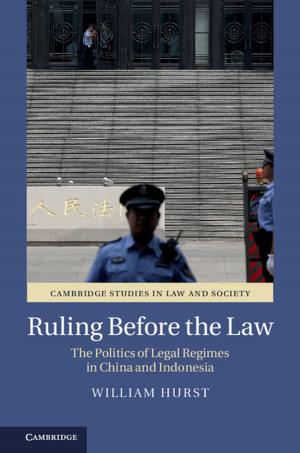| Author: | Stefan Winter | ISBN: | 9780511739682 |
| Publisher: | Cambridge University Press | Publication: | March 11, 2010 |
| Imprint: | Cambridge University Press | Language: | English |
| Author: | Stefan Winter |
| ISBN: | 9780511739682 |
| Publisher: | Cambridge University Press |
| Publication: | March 11, 2010 |
| Imprint: | Cambridge University Press |
| Language: | English |
The Shiites of Lebanon under Ottoman Rule provides an original perspective on the history of the Shiites as a constituent of Lebanese society. Winter presents a history of the community before the 19th century, based primarily on Ottoman Turkish documents. From these, he examines how local Shiites were well integrated in the Ottoman system of rule, and that Lebanon as an autonomous entity only developed in the course of the 18th century through the marginalization and then violent elimination of the indigenous Shiite leaderships by an increasingly powerful Druze-Maronite emirate. As such the book recovers the Ottoman-era history of a group which has always been neglected in chronicle-based works, and in doing so, fundamentally calls into question the historic place within 'Lebanon' of what has today become the country's largest and most activist sectarian community.
The Shiites of Lebanon under Ottoman Rule provides an original perspective on the history of the Shiites as a constituent of Lebanese society. Winter presents a history of the community before the 19th century, based primarily on Ottoman Turkish documents. From these, he examines how local Shiites were well integrated in the Ottoman system of rule, and that Lebanon as an autonomous entity only developed in the course of the 18th century through the marginalization and then violent elimination of the indigenous Shiite leaderships by an increasingly powerful Druze-Maronite emirate. As such the book recovers the Ottoman-era history of a group which has always been neglected in chronicle-based works, and in doing so, fundamentally calls into question the historic place within 'Lebanon' of what has today become the country's largest and most activist sectarian community.















